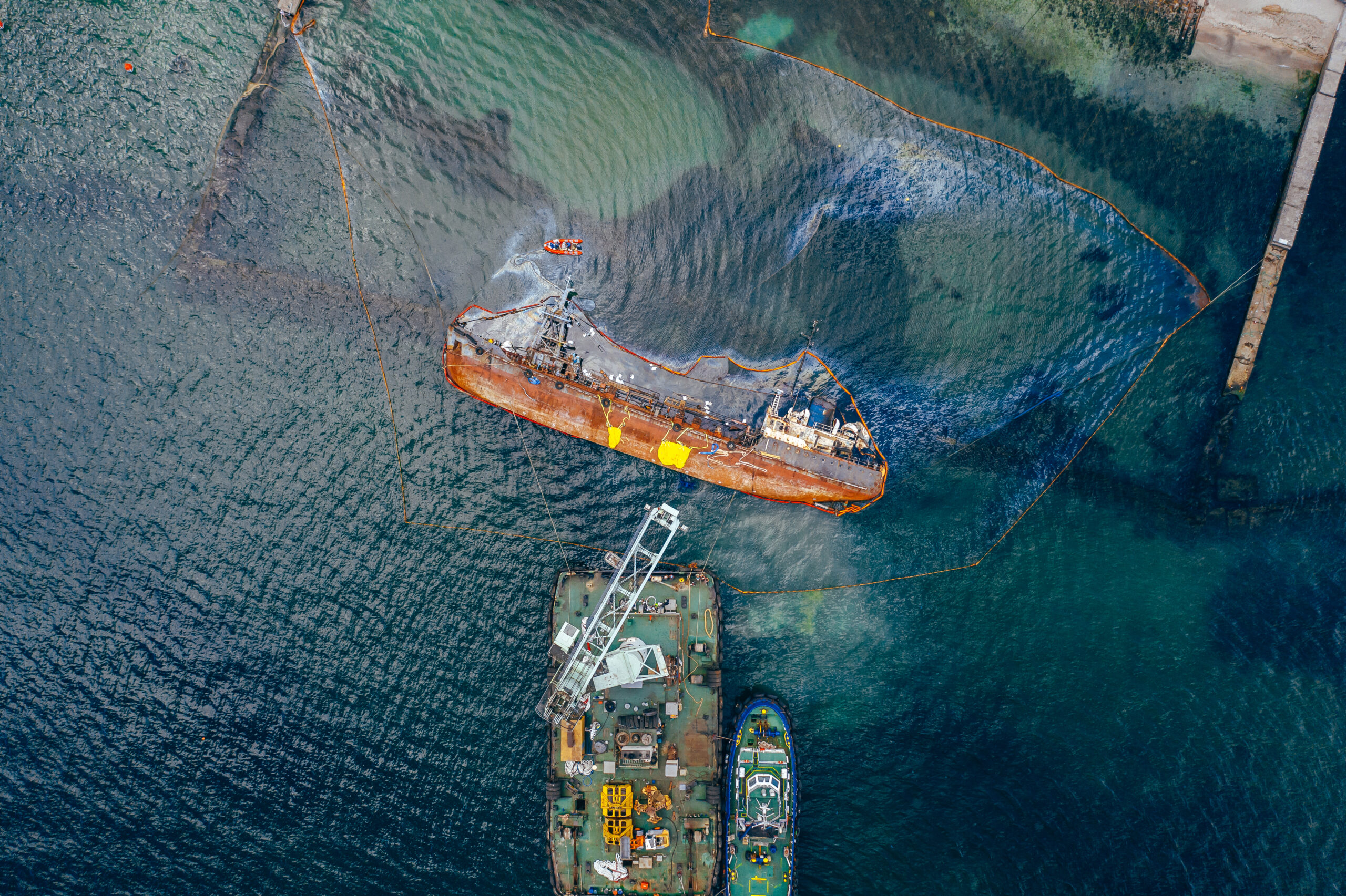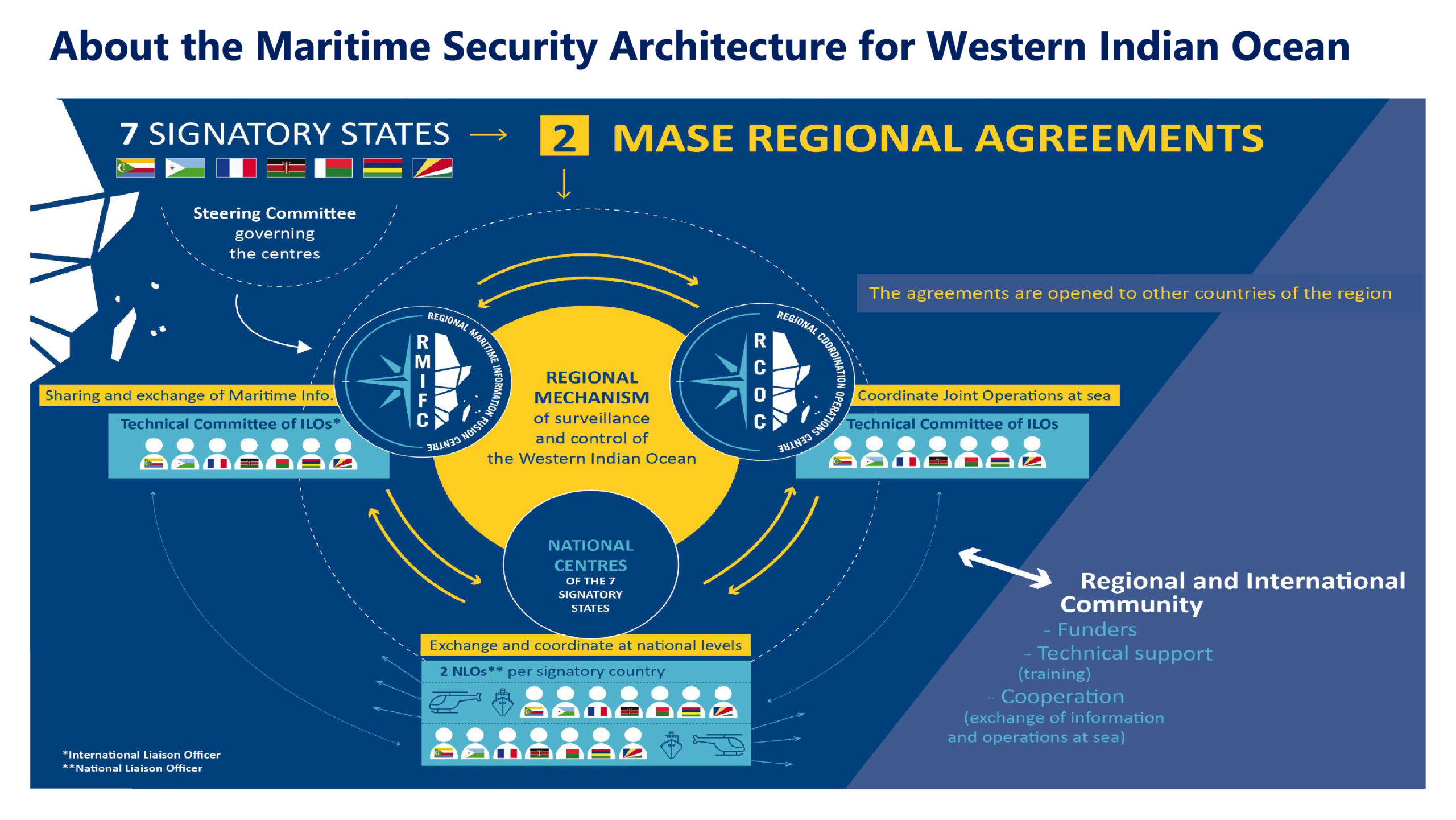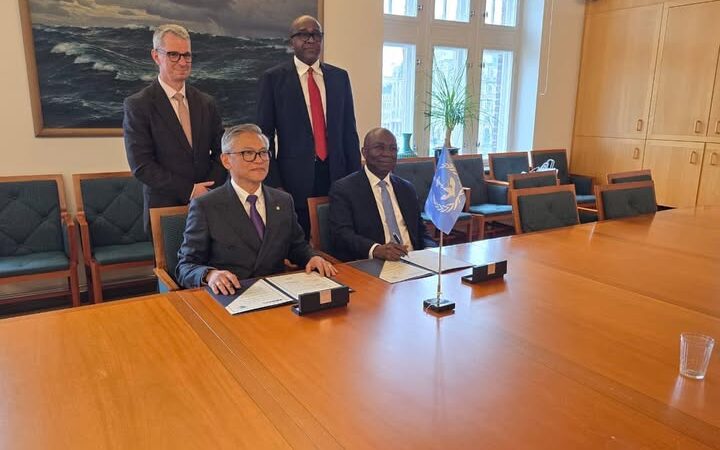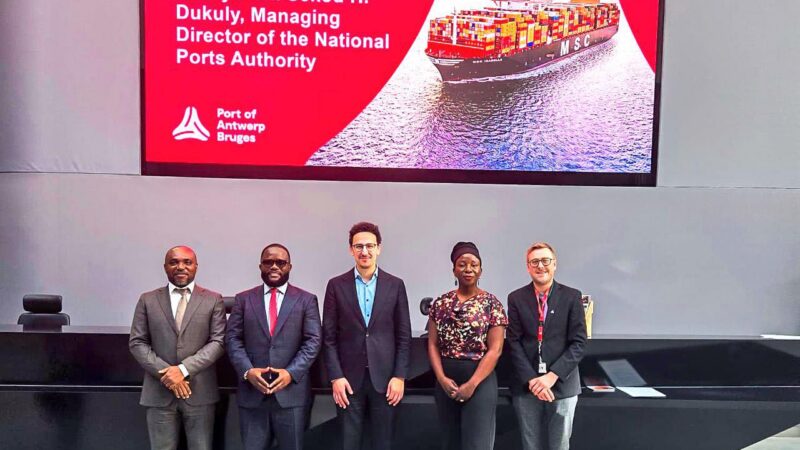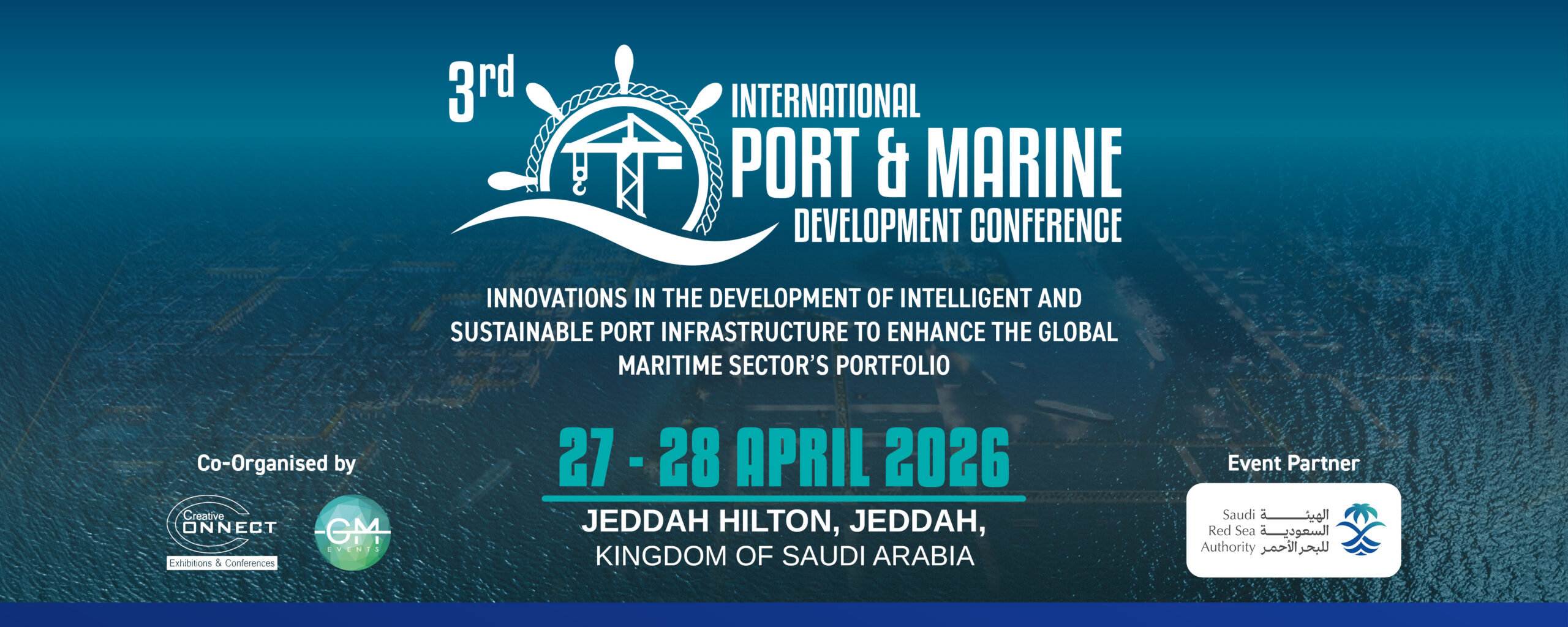Opening tomorrow a Western Indian Ocean Pollution Regional Exercise (WIOPOLREX)
The Regional Coordination Operations Centre (RCOC) and the Regional Maritime Information Fusion Centre (RMIFC), armed components of the Western Indian Ocean Maritime Security Architecture, established in 2018, are organising a regional simulation exercise on Marine Pollution from 25th to 27th July 2023.
Entitled Western Indian Ocean Pollution Regional Exercise (WIOPOLREX), the event which will be held both online and face-to- face at the RCOC headquarters in Seychelles, will bring together over 15 regional States to test their level of preparedness and responsiveness with regards to any accidental pollution event (oil, hazardous and noxious substances, etc). Key international partners will also provide technical and technological support during the Table Top exercise. This initiative is supported by the Indian Ocean Commission through the EU-funded MASE programme. This tabletop exercise (TTX ) WIOPOLREX is part of the overall action plan of the regional centres to improve their capacity to coordinate and response to maritime incidents, together with riparian States.
The Need for Regional Cooperation
The decision to hold the WIOPOLREX exercise stems from the lessons learned during the devastating oil pollution incident involving the MV WAKASIO on July 25th, 2020, off the southeastern coast of Mauritius. Approximately 1,000 metric tonnes of oil were spilled into the ocean, causing significant environmental damage. This incident, along with other grounding and drifting situations experienced in Comoros, Madagascar, Seychelles, and Reunion, highlighted the necessity for regional and international cooperation in tackling marine pollution.
Main Objectives of the WIOPOLREX
- Strengthen regional and international Cooperation in responding to marine pollution incidents
- Enable participating States to examine their marine pollution preparedness and strategy as well as their ability to share information and implement responses as per their respective National Contingency Plan
- Contribute to the review of the regional Oil Spill Contingency Plan proposed under international instruments, in particular, the Nairobi Convention
- Take stock of the equipments related to oil pollution responses both at national and regional levels.
- Identify gaps and test inter-agency coordination at a regional and international level during oil pollution response operations
- Examine the ability of the RCOC and RMIFC to support regional coordination in the event of accidental marine pollution incidents while avoiding duplication
About the Maritime Security Architecture for Western Indian Ocean
The two regional centres
The Regional Coordination Operations Centre – RCOC
Based in the Seychelles, the Regional Coordination of Operation Centre (RCOC) has the following mission:
• Conduct coordinated missions of regional interest;
• Strengthen individual and institutional capacities through training and exchange of experience;
• Organize joint and/or coordinated interventions at sea;
• Enable facilitation and support between the parties;
• Promote cooperation with other agencies operating in the field of maritime security and safety.
The Regional Maritime Information Fusion Centre – RMIFC
Based in Antananarivo, Madagascar, the Regional Maritime Information Fusion Centre (RMIFC) has the following mission:
• Collect, merge and analyse maritime information;
• Establish a knowledge of the regional maritime situation;
• Interact with the Regional Coordination Operations Centre;
• Produce reports and studies related to regional maritime safety and security and the maritime domain in general.
About the organisers
- The Indian Ocean Commission
Created in 1982, the IOC is an intergovernmental organisation that brings together five Member States: the Union of the Comoros, France (Reunion Island), Madagascar, Mauritius and the Seychelles. As the only regional organisation entirely composed of islands, it defends the specific characteristics of its Member States on the continental and international scene. With the active support of a dozen international partners, the IOC is strengthening regional cohesion through various sectoral cooperation projects, including maritime security. Strongly committed to sustainable development, the IOC has been leading an ambitious but vulnerable joint regional action for more than thirty years in the Indian Ocean region.
- The MASE programme
The Regional Maritime Security Programme (MASE) is a comprehensive response to maritime insecurity in the Eastern and Southern Africa and Indian Ocean region. Funded by the European Union to the tune of €42 million, this programme is implemented by four regional organisations (IGAD – the coordinator, EAC, COMESA and IOC). Divided into 5 result areas, this programme has also the technical support of FAO, UNODC and INTERPOL. The IOC has been implementing Results 4 and 5, consisting of the development of Maritime Security Architecture for information exchange and joint operations at sea for the Western Indian Ocean Region
- European Union
As the leading contributor to international development support, the European Union is actively involved in maritime security initiatives in the Indo-Pacific region. This political and operational commitment is described in the form of military and civilian missions (EUNAVFOR Atalanta, EUCAP Somalia, Port Security Programme, CRIMARIO) and other cooperation programmes. The MASE programme is fully in line with this partnership between the European Union and the Western Indian Ocean countries for a more secure maritime domain. Implemented by IGAD, EAC, COMESA and IOC, the MASE programme is funded by the European Union to the tune of 42 million euros. EU support enables partners at national and regional level to combat regional maritime security, i. e. piracy.


